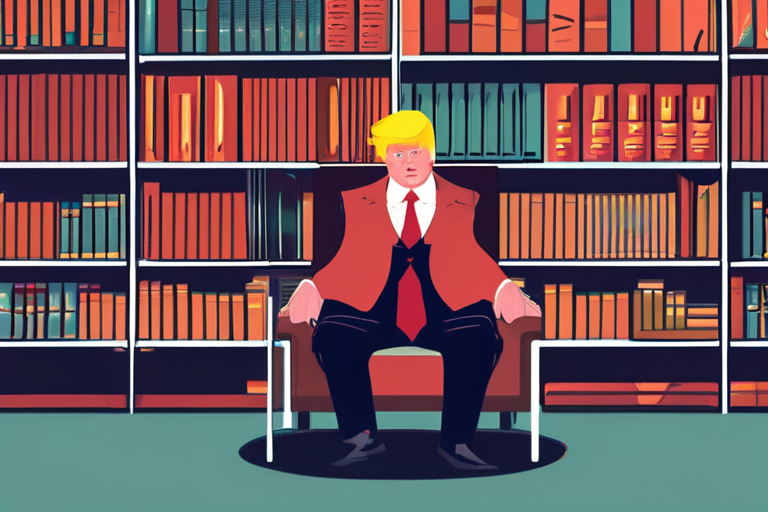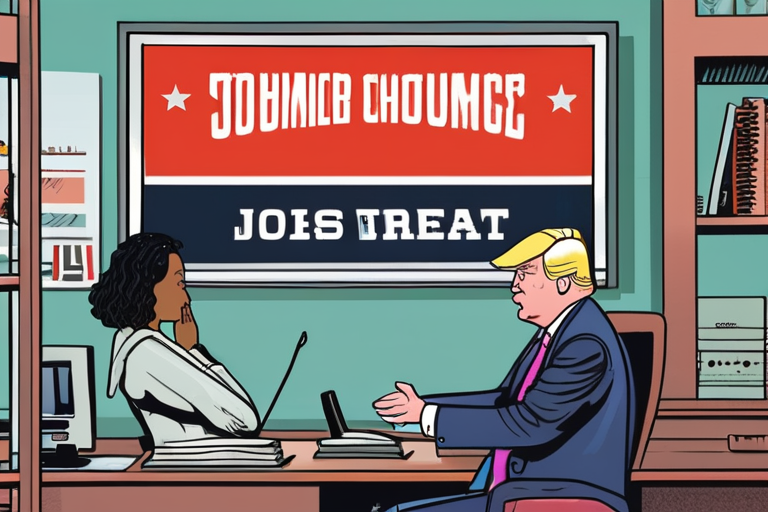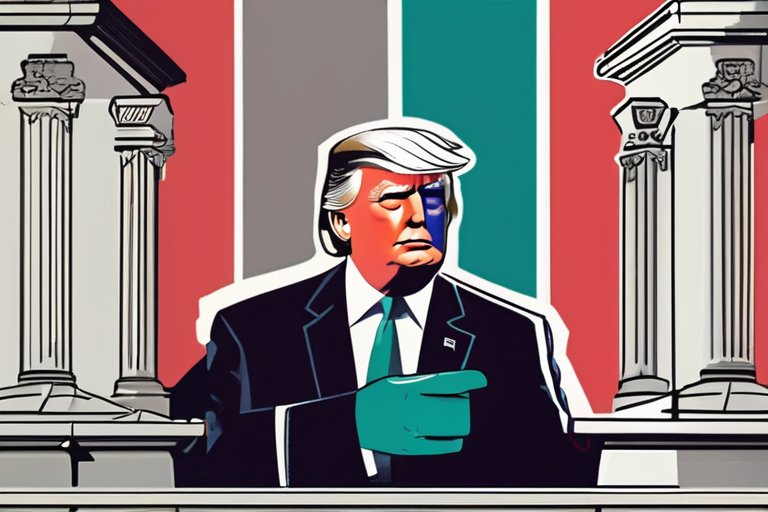Trump Administration Imposes New Conditions for Universities Seeking Federal Funding


Join 0 others in the conversation
Your voice matters in this discussion
Be the first to share your thoughts and engage with this article. Your perspective matters!
Discover articles from our community

 Hoppi
Hoppi

 Hoppi
Hoppi

 Hoppi
Hoppi

 Hoppi
Hoppi

 Hoppi
Hoppi

 Hoppi
Hoppi

Colleges Pull Back as Trump Cuts Programs that Help Migrant Students The Trump administration's decision to halt funding for the …

Hoppi

Government Shutdown Delays Monthly Jobs Report; Trump Offers Incentives to Colleges The ongoing government shutdown has taken a significant toll …

Hoppi

Federal Education Budget Battle: Schools Stand to Lose Billions The battle over the next federal education budget has begun, with …

Hoppi

Charlie Kirk's Murder Fuels New MAGA Attacks on Higher Education: A Threat to Taxpayer Dollars The murder of Charlie Kirk, …

Hoppi

Trump "Compact" Offers Preferential Treatment To Compliant Colleges The Trump administration has proposed a compact with nine prominent universities, outlining …

Hoppi

Trump Administration Offers Universities a Choice: Comply for Preferential Funding The Trump administration has presented nine top universities with a …

Hoppi